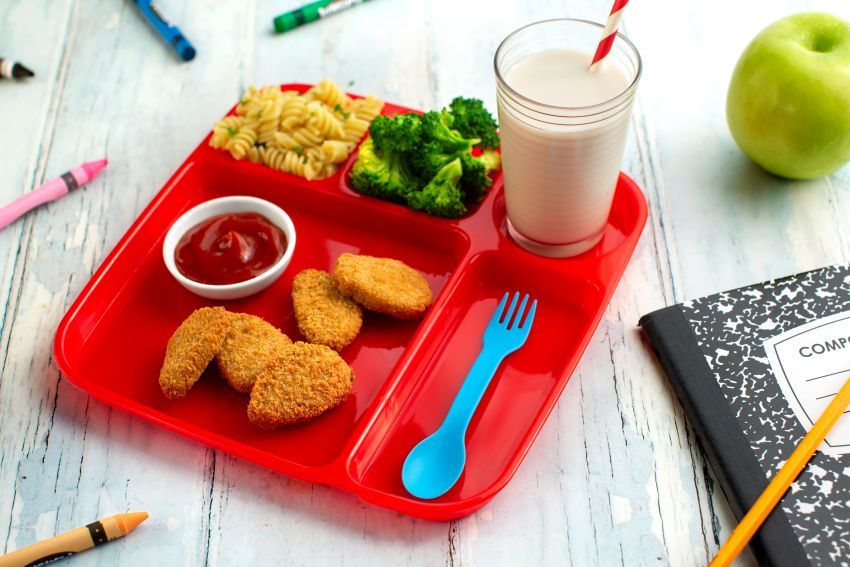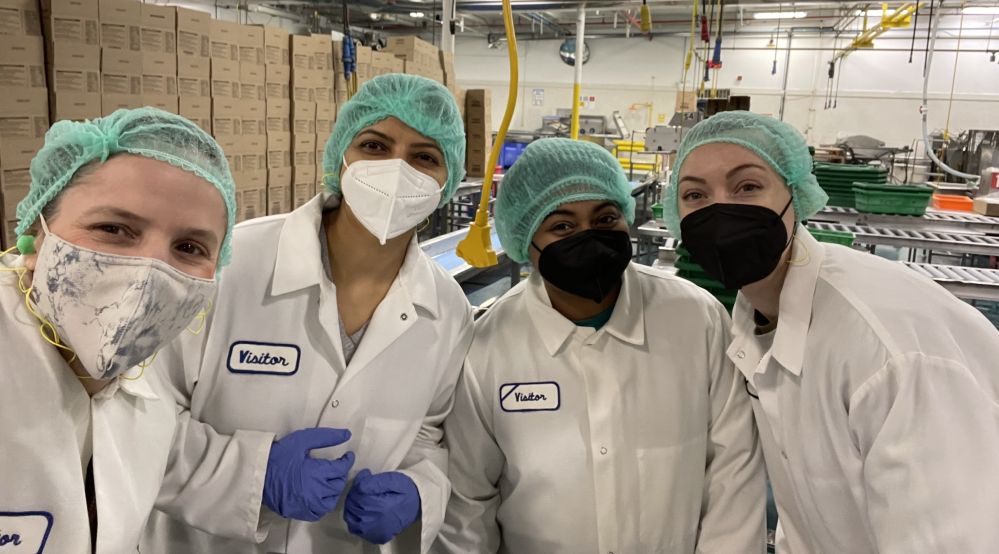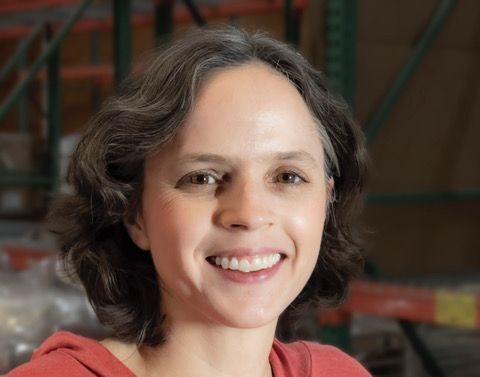Seattle-based Rebellyous Foods is inviting proposals from food facilities to operate a continuous processing system it claims can slash production costs for plant-based meat by 60% vs standard methods, finally enabling meat alternatives to reach cost parity with their animal-based counterparts.
While US retail sales of plant-based meat have fallen steadily this year, enthusiasm from schools and other foodservice accounts is actually growing, claims Rebellyous, which currently supplies more than 200 school districts under the USDA National School Lunch Program with breaded soy-based nuggets, tenders, and patties.
‘We’re seeing high growth’
“We and others are seeing increases in plant-based meat in foodservice in general,” said founder Christie Lagally, a former Boeing engineer who says schools are seeking out plant-based options because more students are vegans and vegetarians or have religious dietary concerns, in order to meet climate targets, or simply because many children prefer them.
“We’re seeing high growth because we’re hyper focused on a market that really wants to replace meat on a large scale, which is our school districts, and we keep our prices very close to what schools can pay for animal meat, so we’re very attractive to schools. We almost doubled sales this year and expect to more than double next year. And as soon as we put our Mock 2 processing system in place, we’re expecting to approach profitability.”
The Mock 2 system
Rebellyous Foods’ ‘Mock 2’ automated and chilled dough substrate processing system enables the production of 2,500 lbs of plant-based chicken an hour (around 10m lbs /year) with the potential to reach 5,000+ lbs/hr or more on a single processing line in a continuous rather than a batch process, “which is on par with major [conventional] chicken processors,” explained Lagally.
Rebellyous is now accepting proposals from USDA or FDA food processing facilities to install the patented Mock 2 system in early spring 2024, with interested parties invited to submit inquiries by January 19.
The Mock 2 system—which could be deployed to make Rebellyous’ products and potentially other companies’ products—comprises a primary continuous dough making system, an integrated control system, and auxiliary bulk material handling and custom sanitation equipment.
According to Lagally, who says Rebellyous does not have the space to operate the Mock 2 system at its own facility, the system is “fully paid for by Rebellyous, and Rebellyous will maintain ownership of this equipment, software and auxiliary systems and data. It is not for sale.”
She added: “We’re seeing interest from big plant-based brands and co-manufacturers. We anticipate that a big chunk of the output will be taken up by Rebellyous products, but if partners want to use the system to make their own products, we can look at licensing or tolling fees.”

The challenges of the ‘mix & form’ batch approach to plant-based meat production
Right now, claims Lagally, most firms making plant-based chicken nuggets are deploying a labor-intensive ‘mix and form’ batch process that involves three steps: hydrating texturized plant protein; mixing a combination of oils, waters, starches, and other ingredients; and then combining the hydrated textured vegetable protein (TVP) and the gloopy binding mixture to make a dough. This is then formed into nuggets, which are breaded and fried.
While elements of this can be mechanized, it’s not very scalable, because there is a limit to the batch size, claims Lagally, who has raised around $32 million to date from backers including Cercano Management and Aramana LLC.
The more water the TVP absorbs, the more it weighs down on itself and pushes water out, limiting the batch size, she says. Mechanizing the mixing process, meanwhile, creates heat, so firms either do it manually or add ice or freeze the room to keep temperatures down, which adds expense.
Mixing the hydrated TVP and the binder is also challenging, because the dough is so viscous, which means it must be mixed for longer, creating heat, which reduces quality and in turn limits the batch size. A percentage of each batch also remains stuck to the sides of the mixer, generating waste.

The advantages of a continuous approach
Rebellyous Foods’ chilled automated system, by contrast, enables the production of plant-based meat on a continuous basis, Lagally explains.
This means you don’t have the problem of more hydrated TVP decreasing the quality of the rest of the TVP, or the emulsion working unevenly so that only parts of the final dough are fully emulsified.
Moreover, as it’s a continuous process, you don’t have the problem where mixing the final dough makes it hotter and hotter because you’re not mixing the same material over and over again in one batch, says Lagally.
Overall, the said the ‘Mock 2’ system can reduce labor costs by up to 90% (through automation), cut energy costs by 80% (by eliminating the need for a chilled environment), cut sanitation costs, reduce waste by an estimated 99%, and virtually eliminate re-work.





